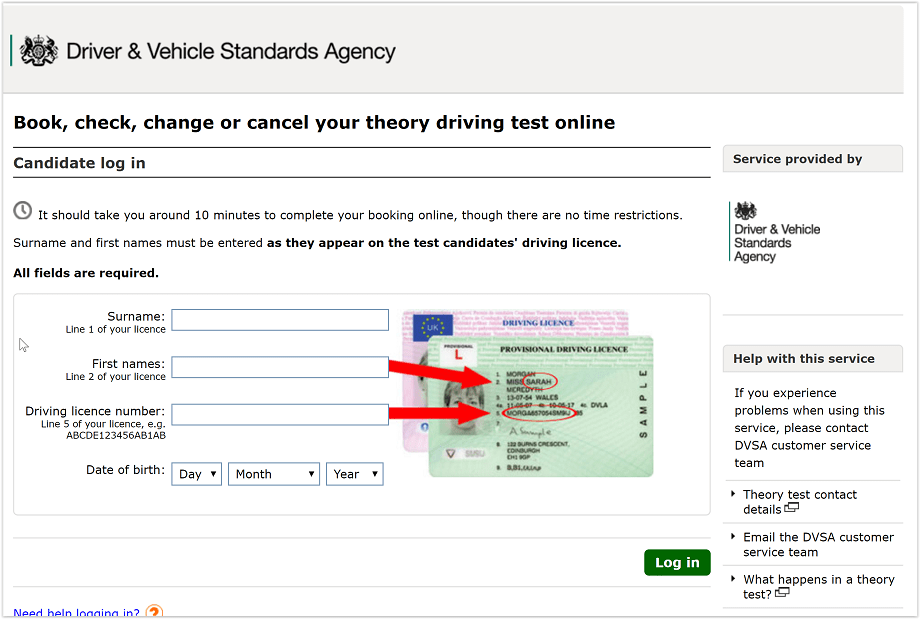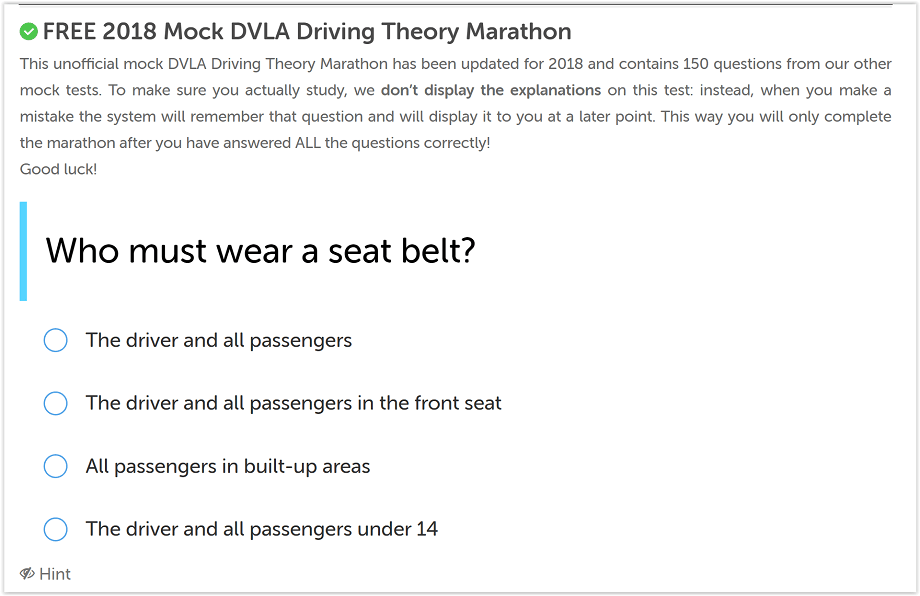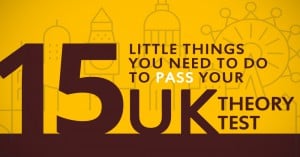Sandwell College
Theory Test Pass Mark: 5 Vital Requirements to Know Before You Go [2025]
- The multiple-choice section
- The hazard perception section
- Finding out your theory test pass mark
- The UK pass rates for theory tests
- How to boost your theory test pass mark
Everything you need to know about the 2025 UK theory test pass mark
- 1
What is the pass mark for theory test?
In the UK, the pass mark for theory test is 86%. This means that candidates must correctly answer at least 43 out of 50 multiple-choice questions to pass. The questions encompass a variety of topics, including alertness, attitude, safety, road signs, and more. With over 700 questions in the official question bank, a broad knowledge base is essential for success. This test is a fundamental requirement for learner drivers before they can proceed to the practical driving test.
Since the test is conducted digitally, you will have the opportunity to practice with a few sample questions before the exam starts. You are allotted 57 minutes to complete all the questions, averaging approximately 68.4 seconds per question. Be prepared for several questions based on a single scenario. Importantly, it’s not an “all or nothing” situation -- if you answer four out of five questions correctly, those marks will count towards your score.
Similarly, as long as you achieve at least 43 marks, you will not fail even if the questions you answered incorrectly are all from the same topic.
The multiple-choice section contains no trick questions. The DVLA has a vast collection of official questions selected randomly, ensuring that no two candidates receive an identical exam.
- 2
What is the hazard perception pass mark?
There are 14 video questions in the hazard perception test. You need to get 44 marks out of the 75 available to pass. If you pass one part of the theory test but fail the other, you will need to retake the entire exam. This is the second part of the theory test, and it is taken almost immediately after the multiple-choice questions.
Here is how the scoring for the hazard perception test works.
In 13 of the questions, there is one developing hazard you need to spot by looking at the video provided. You need to click the mouse as soon as you see a danger ahead. Another question -- which can appear in any order -- will have two developing hazards.
Each question carries a maximum of five marks dependent on how quickly you click the mouse. It then goes down on a sliding scale to zero points.
If you click too early, you will get no marks for that question. You only receive one attempt to get it right. This is to deter people from clicking repeatedly.
- 3
How will I find out what I scored?
Because the theory test is completed digitally, you will be told about your mark -- and whether you have passed -- on the day of the exam.
If you have failed, you will be given a letter which explains the areas where you went wrong. Unfortunately, there needs to be a 72-hour gap before you retake the examination -- giving you time to revise and figure out what went wrong. As many test centres are busy, you may have no choice but to wait a little longer than this.

You should start booking the test immediately if you want to wait less (DVSA booking)You can only move on to the next stage, a practical test, once you have passed your theory examination. The test centre gives you a pass number which needs to be provided when booking the driving test.
- 4
What is the UK pass rate for theory tests?
According to the latest Government statistics, the pass rate for theory tests nationwide was 49.5% in 2017/18. This is compared to 65.4% in 2007/08.
Girls are more likely than boys to pass their theory test. Whereas boys had a pass rate of 47.5% in the most recent set of figures, girls had a pass rate of 51.5%. That’s based on the 979,097 theory tests conducted.

According to the official DVSA statistics, girls pass rate has always been higher - 5
How do you improve your chances when going in?
-- Carefully read the questions. As we mentioned, there are no trick questions. However, it is possible that you can misunderstand what is being asked and provide the wrong answer because of it.
-- Not sure about a question? Come back to it at the end. Given the fact that there is a bit of time pressure associated with the multiple-choice section, it is worthwhile making the most of a feature that allows you to skip a question and answer it once you have completed everything else. This helps prevent you from becoming stressed, it’s a good form of time management, and answering other questions may help to jog your memory.
-- Check over your answers. In the multiple-choice section only, you can go back and amend your answers if you need to. It’s worth trying to allocate a little time towards the end to check for any silly mistakes which could end up being the deciding factor between a pass and a fail.
-- Always take the three-minute break. You are allowed to have a little breather in between the multiple-choice questions and the hazard perception. This allows you to clear your head and prepare for the next challenge.
-- Read the materials the tests are based on. If you read and study the Highway Code, Know Your Traffic Signs and Driving -- The Essential Skills, you will be equipped with all the knowledge you could be tested on in the exam.
-- Take mock theory tests. TopTests.co.uk has a series of tests where you can see what type of pass mark you’ll receive if you went into an exam room at this exact moment. This allows you to detect your weaknesses and make improvements without having the upset of failing the test, or the expense of booking another one. You are told exactly where you have gone wrong if you answer a question incorrectly. Use a stopwatch to ensure you can get through 50 questions in the time allotted.

A good example is this free Driving Theory Marathon that contains 150 questions (Theory Marathon)


